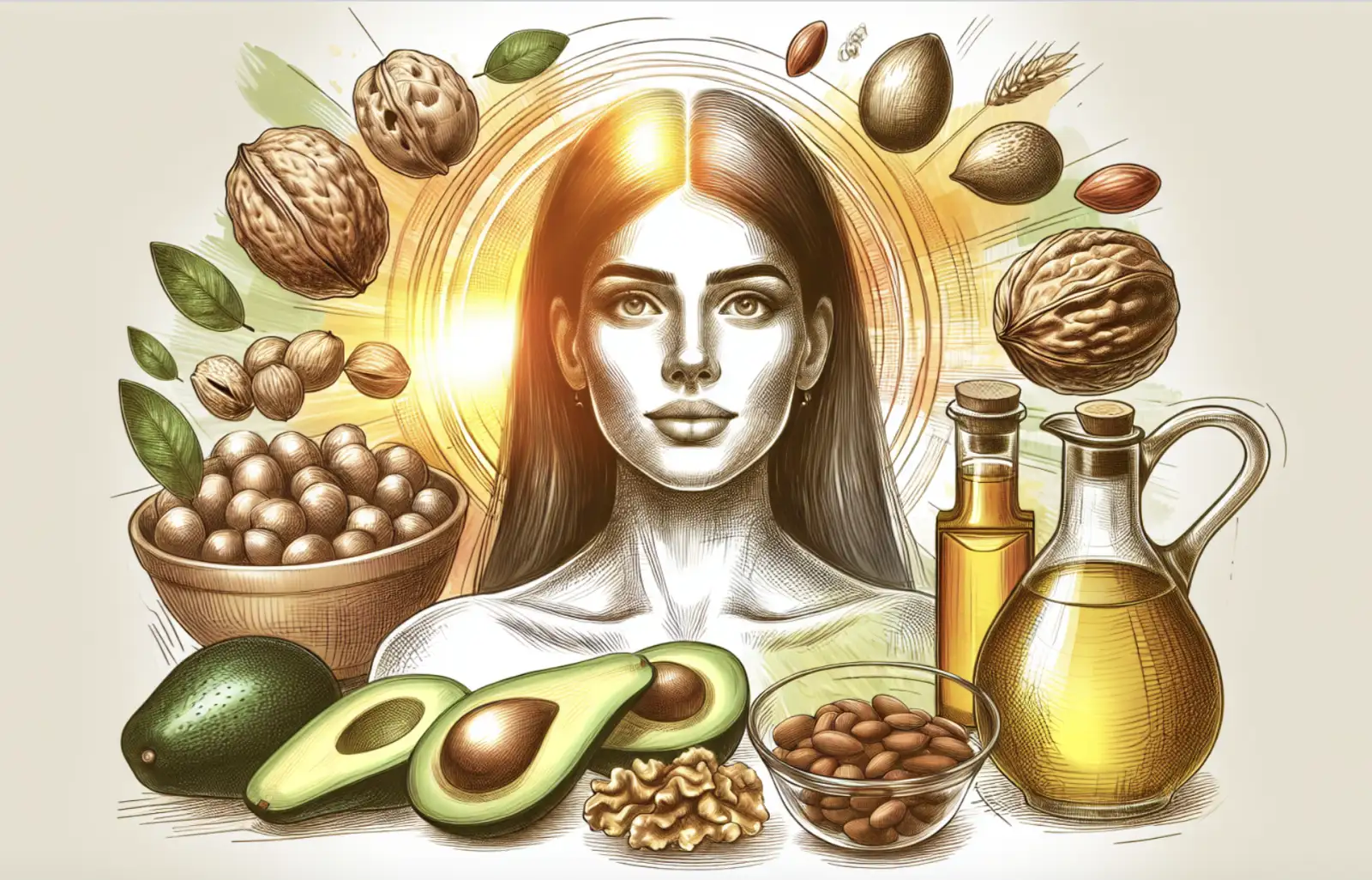Don't Misunderstand Fat: How "Oil" Can Contribute to Your Health

Translated by AI
At communal meals, Eva consistently avoided oily dishes to manage her weight, or she rinsed them before consumption. She steered clear of fried items, even additionally avoiding fatty options like pork belly and salmon, fearing that even a single bite could lead to weight gain. She filtered vinaigrette from salads and replaced frying with boiling in her cooking, even shunning naturally fatty foods like avocados. This dietary pattern persisted for years, yet she neither lost weight nor improved her condition—often experiencing fatigue, irritability, skin dryness, and irregular periods.
Upon realizing her diet’s potential role in these issues, she consulted a nutritionist. Guided by expert advice, she began incorporating healthy fats into her regime while moderating their intake. As a result, her weight stabilized, her vitality returned, her skin regained its radiance, and her menstrual cycle normalized.
Do you misinterpret fats as Eva did? With the correct fats, they're not foes but essential allies in health maintenance. Let's rediscover fats' significance in this exploration.
Demonized Fats
For decades, "low-fat" equaled healthy eating, branding fats as agents of obesity and heart disease, yet these perceptions are incomplete.
Mid 20th-century studies connected high-fat diets to heart disease risk, motivating health policies toward low-fat promotions. Consequently, the food industry launched "low-fat" products, often with increased sugar to enhance flavor, leading to another health dilemma: rising obesity and metabolic disorders.
Saturated fatty acids aren’t entirely detrimental, while polyunsaturated and monounsaturated fats are vital for health. Fat vilification results from misunderstandings and informational gaps.
Fats' Real Impact on Health
Fats are one of the three essential macronutrients, offering energy, playing roles in cell structure, hormone synthesis, and vitamin absorption. The brain, as the body's fattiest component, depends on good fats for health; fats also make up crucial parts of cell membranes, maintaining elasticity and functionality. Moreover, fat-soluble vitamins such as A, D, E, and K require fats for absorption.
True health determinants are fat types and intake quantities.
Fats Aren’t Responsible for Weight Gain
Beautiful cakes in windows, shiny street snacks, creamy milk teas—these delightful treats are weight gain culprits. Consuming high-fat, refined carbohydrates and sugars simultaneously triggers blood sugar spikes, eliciting insulin release. Insulin reduces blood sugar levels while storing excess sugar as fat. Especially high-fat, high-sugar combinations accelerate fat accumulation, escalating obesity risks. Conversely, healthy fats alone or paired with proteins and vegetables don't provoke such drastic blood sugar shifts.
Diet’s Overall Framework Trumps Fat Avoidance
Recent dietary trends like the Mediterranean and ketogenic diets underscore adopting good oils. The Mediterranean diet, for instance, emphasizes olive oil, nuts, and fish alongside ample fresh produce, limiting red meat, thereby reducing health risks. The ketogenic diet features high-fat, moderate protein, and low-carb consumption, altering the body’s reliance on glucose to fat—a method historically used for diabetes treatment (pursue with professional support).
Importance of Optimal Fat Intake
Fats are pivotal for hormone synthesis, particularly sex and stress hormones, revealing why prolonged low-fat dieting could disrupt menstrual patterns or provoke moodiness.
Consuming superior fats parallels using fine materials, fostering quality hormone production. Conversely, consuming inadequate fats parallels substandard construction, yielding poor hormone quality. Fat shortages may cause hormonal imbalances, lethargy, skin dryness, affecting health.
Defining Beneficial Fats
- Natural, cold-pressed, unrefined plant oils are excellent fat sources.
- Foods inherently rich in fats, such as avocados, non-high-temperature roasted nuts, pork belly, salmon.
Identifying Harmful Fats
- High-temperature processed and refined plant oils, like salad oil, blended oils.
- Trans fats, created from hydrogenated vegetable oils, found in margarine, fried items, pastries.
Strategic Fat Consumption
Opting for natural, unprocessed plant oils is optimal. Rapid cooking methods in Chinese cuisine can degrade oils, favor steaming, slow cooking, or blanching with oil to retain oil quality and nutrients.
Not all natural plant oils falter under heat. Some high smoke-point oils, like cold-pressed extra virgin olive oil (smoke point ~200°C), rice bran oil (smoke point ~250°C), and avocado oil (smoke point ~250°C), are suitable for standard cooking without heavy frying.
Regularly intake Omega-3-rich oils like flaxseed oil, fish oil, and perilla seed oil. Modern diets often overly contain Omega-6, inciting inflammatory responses found in salad oil, soybean oil, sunflower oil. Urban eaters typically suffer from excessive Omega-6 inflammation. Balancing Omega-3 to Omega-6 ratios aids hormonal function and mitigates chronic disease and inflammation.
Healthy fats should compose 20-35% of daily caloric intake, avoiding surpluses or deficits. Balancing diverse healthy oil types yields comprehensive benefits.
Healthy eating thrives on "good oils." Selecting natural, unprocessed healthy fats and incorporating them into daily meals is central to boosting overall wellness.
Action Plan:
- Employ cold-pressed extra virgin olive oil for salads or blanched veggies thrice weekly.
- Amplify Omega-3 food intake, enjoying deep-sea fish twice a week.
- Explore the Mediterranean diet for balanced fat integration.
Revise perspectives, embrace fats, let healthy oils become a dietary staple.












